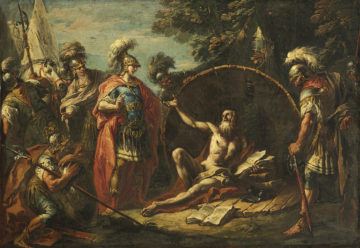by Scott F. Aikin and Robert B. Talisse

In a democracy, political decisions are typically made by way of elections. In winner-take-all systems, elections produce winners and losers. It seems natural, then, that in the United States our talk about democracy tends to focus on the competitive aspects of politics. For example, processes for filling political offices are called “contests” and “races”; candidates for such offices are called “contenders” and “hopefuls”; and electoral wins are called “victories,” while losses are called “defeats.” When a candidate loses especially decisively, we reach for stronger language; we sometimes say the candidate was “trounced” or side was “clobbered.” Our popular political vocabulary closely resembles the way we talk about sports. So, in addition to wins, losses, and races, there are cases of running up the score, playing out of bounds, and even spiking the political football.
Seizing on this, candidates and commentators tend to proceed as if political wins are deeply like sports victories. Winners present themselves not only as having prevailed against the other candidates, but also as having defeated everything the opposing side stands for. The team that wins the World Series is thereby the champion, and there’s nothing for the other teams to do other than begin training for next season; similarly, winning candidates tend to proceed as if those they prevailed against are relegated to a similar status: they must reconcile themselves to their losses, step aside, and look towards the next election.
Of course, part of the reason why the sporting vernacular is so prominent in our politics is that it indeed captures fundamental features of how democracy in the United States works. As we noted at the beginning, our winner-take-all elections really do produce winners and losers. So, that similarity is not an illusion. However, the similarity with sports goes only so far, and it is shallower along other lines than its prominence may suggest. Read more »

